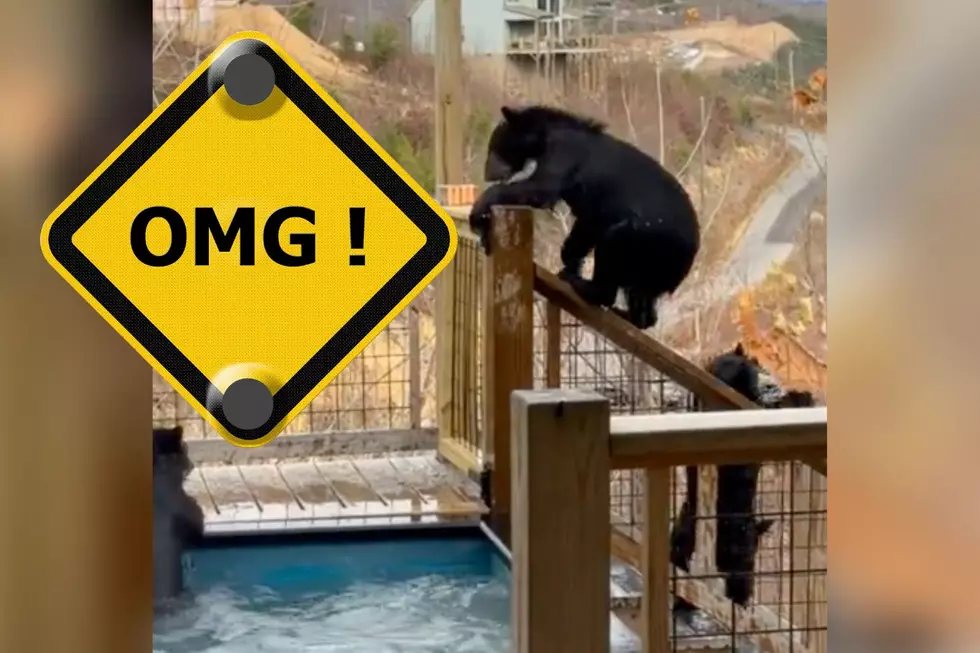
Watch Three Bear Cubs Take a Dip in a Tennessee Airbnb Pool
Bear spottings in the Smoky Mountains are happening more often. Maybe it's because we all have cameras on our phones now, and maybe it's because they have little space left that doen;t to have tourist attractions and resorts nearby.

They can't get away from us, nor do they want to. We have great food and we enjoy fun things like jacuzzis and pools. Who can resist those things?
Certainly not three bear cubs in Gatlinburg, Tennessee. They saw an opportunity to have a little fun and cool off, so they took it.
Here is how it played out for the family in the Airbnb.
When you unknowingly pay for dinner and a show - Ultimate Airbnb escape (@smokymountainchalets). I took a video of bear cubs jumping in our Airbnb pool, my toddlers have literally never been more excited and I was scared the Airbnb hosts were going to blame me for ruining their pool. The hosts were mad cool and now my toddlers want a bear.
Take a look. They look like they are teenagers who just got caught in the neighbor's pool. LOL
Is this a rare thing, bears swimming in a pool?
Do black bears like to swim in pools?
According to bearwise.org,
Bears are attracted to water, especially in the summer. Swimming pools, hot tubs, and artificial ponds all make good places for a bear to cool off.
Do other woodsy animals want to take a dip in your pool?
What animals like to swim in pools?
Statistically speaking, the most common animals you'll find in your swimming pool are creatures like frogs, snakes, raccoons, squirrels, and birds. However, there is plenty of other larger wildlife that are eager to make use of your swimming pool as well.
LOOK: Stunning animal photos from around the world
More From WKDQ-FM







